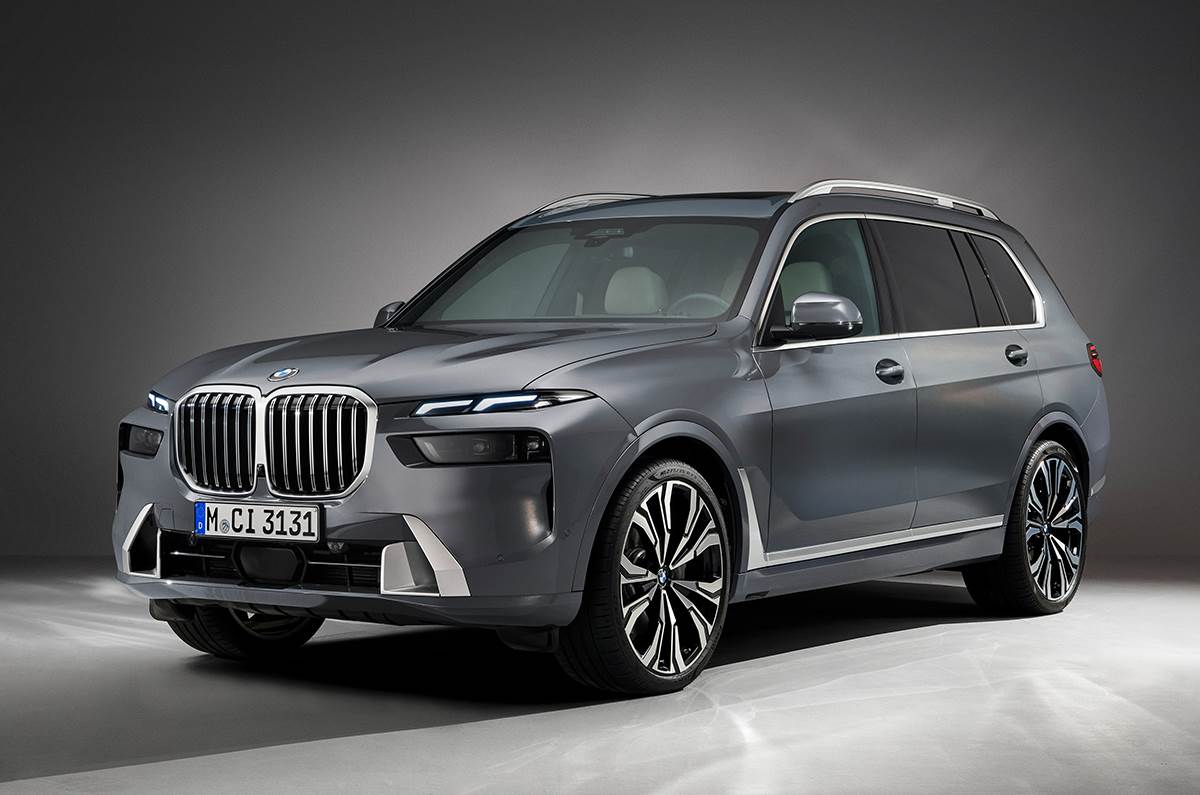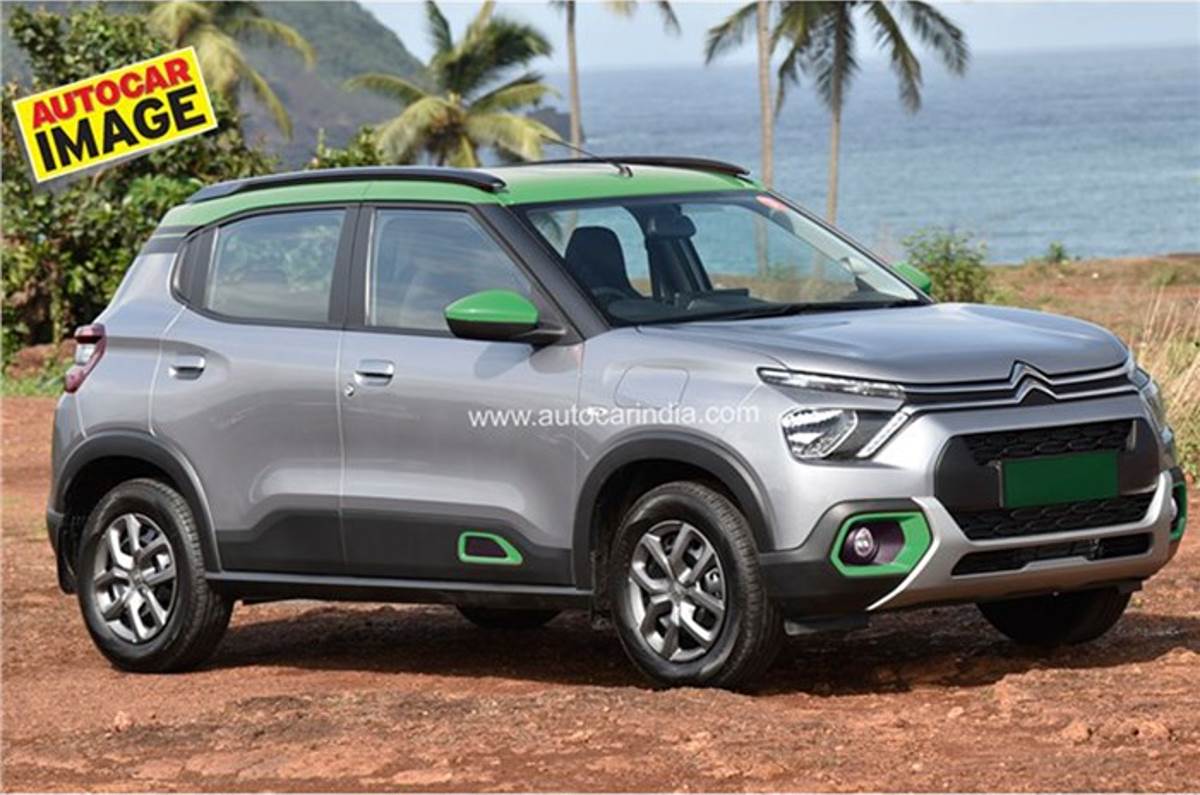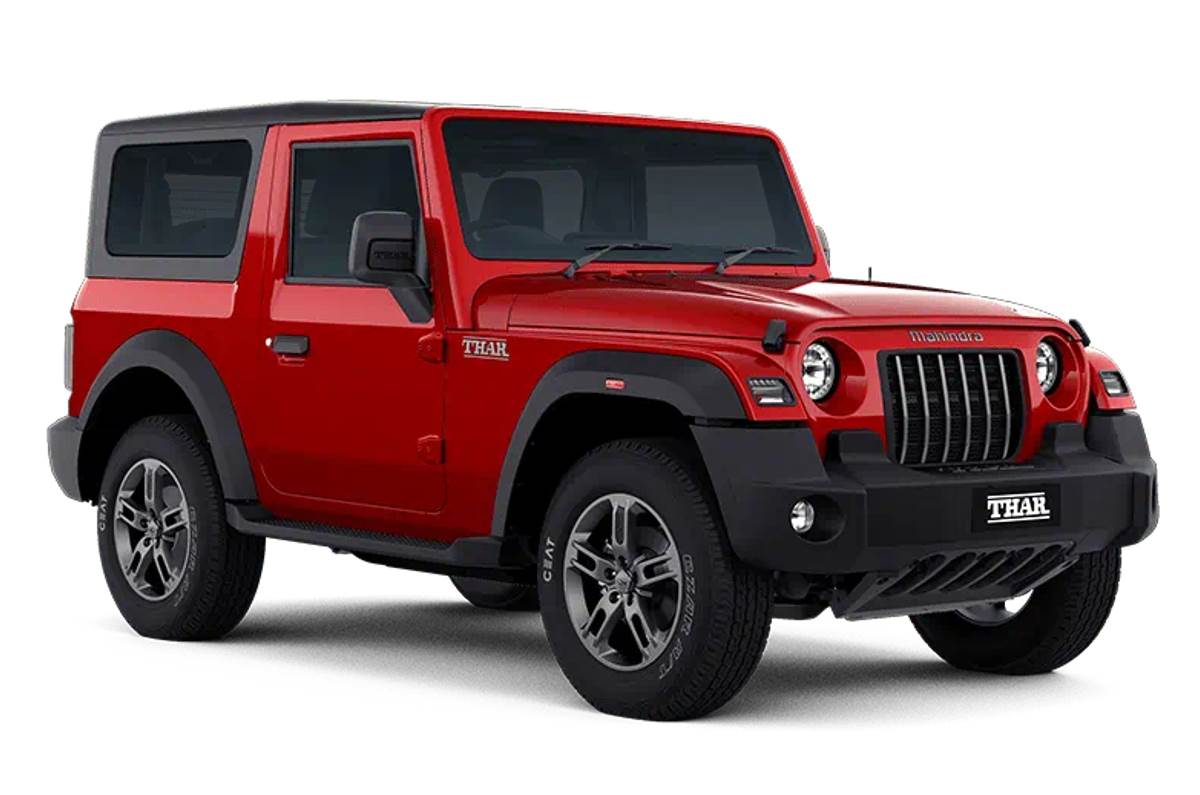The Hyundai Ioniq 5, entry-level Mahindra Thar and as many as five BMWs are some of the new launches lined up this month.
As the new year sets in, automakers are gearing up to introduce new and facelifted models across various segments. These include SUVs, sedans, and hatchbacks from manufacturers like BMW, Hyundai, Toyota, Citroen, Mahindra, MG and Mercedes-Benz. Here’s a rundown of all new cars coming our way this January.
1. BMW X1
BMW will be launching its all-new X1 SUV in India, with deliveries expected to commence by March 2023. The entry-level SUV sports a more upright design, including a flat bonnet, a tall grille and a more fleshed-out rear. At 4,500mm in length, the new X1 is longer than its rival, the Audi Q3, which measures 4,484mm. On the inside, the X1 features a frameless curved display that consists of a digital instrument cluster and a touchscreen system. The brand has yet to reveal the powertrain details of the India-spec X1, but in international markets, the SUV gets 1.5-litre and 2.0-litre petrol along with 2.0-litre diesel engines with mild-hybrid tech.
2. BMW X7 facelift
Unveiled in April 2022, the X7 facelift gets a new front fascia that showcases the brand’s new split-headlamp design. On the inside, the luxury SUV gets the brand’s latest curved infotainment screen that comprises a 12.3-inch digital instrument cluster and a 14.9-inch touchscreen. In India, the X7 will be offered in xDrive 40i and xDrive 30d guises, where the former gets a 380hp, inline six-cylinder petrol engine, while the latter uses a 352hp, inline six-cylinder diesel engine. Both the engines are coupled with 48V mild-hybrid tech and come mated to an 8-speed automatic gearbox with all-wheel drive as standard. You can read our international review of the luxury SUV by clicking here or watch the video review by clicking here.
3. BMW 7 Series
The seventh-generation 7 Series is based on BMW’s CLAR platform and also adopts the same split-headlamp set-up as the facelifted X7. The interior has also been completely redesigned, with new hidden AC vents, a curved screen infotainment system, touchscreens on the rear door pads, automatic doors and a new crystal-like effect for the dashboard. The biggest highlight has to be the optional roof-mounted 31.3-inch, 8K ‘cinema’ screen. The India-spec version is likely to get the 299hp, 3.0-litre inline-six diesel (730d); the 380hp, 3.0-litre inline-six petrol (740i); and the 543hp, 4.4-litre twin-turbo V8 engine (M760i), all of which come with 48V mild-hybrid tech and all-wheel drive as standard. Notably, the new 7 Series does not have a short-wheelbase version and comes in long-wheelbase guise as standard.
4. BMW i7
As the all-electric version of the new 7 Series, the i7 is underpinned by the same CLAR architecture and has the same exterior and interior design. However, the i7 sports electric blue highlights on the outside and a prominent ‘i’ badging on the grille to differentiate itself. The i7 gets a 101.7kWh lithium-ion battery embedded in the floor pan that gives it a claimed range of 590-625km on the WLTP test cycle. In xDrive 60 spec, the version expected to come to India, the i7 produces a combined output of 544hp from two electric motors mounted on each axle. BMW claims the i7 can be charged with speeds of 100km in 6 minutes on compatible 195kW DC chargers.
5. BMW 3 Series Gran Limousine facelift
As the long-wheelbase version of the refreshed 3 Series, the Gran Limousine now sports styling tweaks that include new LED headlamps with blue accents, and reworked bumpers. On the inside, the luxury sedan now gets BMW’s curved display and an updated cabin. BMW has yet to reveal the powertrain details for the India-spec 3 Series Gran Limousine facelift but the version sold in China gets a 2.0-litre turbo-petrol engine that’s paired to an 8-speed automatic transmission.
6. Citroen eC3 electric
Citroen is gearing up to launch the all-electric version of the C3 this month. The French automaker has also confirmed the eC3 moniker for the electric hatchback. The eC3 will remain almost identical to its ICE counterpart, apart from the lack of a tailpipe and the addition of a new charging port on the front fender. The interior, meanwhile, will likely see a revised centre console, with a new drive controller that’ll replace the manual gear lever. It will be powered by a 30.2kWh battery pack that sends power to the front-axle-mounted electric motor to produce 86hp and 143Nm. The electric hatchback will have a 3.3kW onboard AC charger and is expected to have an ARAI-rated range of around 350km.
7. Hyundai Ioniq 5
Recently showcased in India, ahead of its launch at the Auto Expo 2023, the Ioniq 5 is Hyundai’s flagship model and the sister car to the Kia EV6. With bookings having opened at a token amount of Rs 1 lakh, the Ioniq 5 will undercut the EV6 (Rs 59.96 lakh, ex-showroom, India), as it will be locally assembled, therefore making it more affordable. Its exterior design highlights include the pixelated design for the front and rear lights, an intricate design for the 20-inch aero-optimised alloys, and highly raked windscreens.
Hyundai has yet to reveal the powertrain details of the Ioniq 5, but it’s expected to be equipped with a 72.6kWh battery, which will give it an ARAI-certified range of 631km on a single charge. The Ioniq 5 is available in rear-wheel-drive configuration, with its electric motor producing 217hp and 350Nm of torque. It is also capable of supporting superfast 800V charging, which can charge the battery from 10 percent to 80 percent in 18 minutes.
8. Mercedes-AMG E 53 Cabriolet
Mercedes-Benz is gearing up to launch the E53 Cabriolet 4Matic+ in India on January 6 via the CBU route. It will be the fourth ‘53’ badged AMG model in India after the E 53 sedan, GLE 53 coupe-SUV and the EQS 53 EV sedan. Like the E 53 sedan and GLE 53 coupe-SUV, the cabriolet also uses the same 435hp, 3.0-litre turbocharged petrol engine with an integrated starter generator, which makes an additional 21hp and 249Nm of torque. The E 53 cabriolet gets AMG-specific styling details like the signature panamericana grille and a new front splitter. On the inside, the E 53 Cabriolet gets a flat-bottom steering wheel and large, dual 12.3-inch instrument and infotainment screens.
9. MG Hector facelift
The Hector will soon be getting a mid-life facelift that will bring comprehensive cosmetic updates on the outside. As per our previous report, the Hector facelift gets a completely new front fascia, including a larger grille, tweaked headlamps, a new bumper and a new tail-lamp assembly with a redesigned red strip connecting the lamps. MG previously revealed the new 14-inch portrait-oriented touchscreen infotainment system for the updated Hector – the largest screen fitted to any car on sale in India. The SUV will also get the next-gen i-Smart tech, an all-new digital instrument cluster and ADAS functionality. You can read about these by clicking here. However, the facelifted Hector will remain mechanically unchanged and will continue with two 143hp, 1.5-litre turbo-petrol engines – one with mild hybrid technology – and a 170hp, 2.0-litre diesel unit. Gearbox options are also expected to remain the same.
10. Mahindra XUV400
Unveiled in September 2022, the Mahindra XUV400 sports a similar design to its ICE-powered sibling, but gets some EV-specific touches that are clearly inspired by the eXUV300 concept. As reported previously, the XUV400 is expected to be offered in three variants – Base, EP and EL. Mahindra has equipped the electric compact SUV with a 39.4kWh battery pack that sends power to the front-axle-mounted electric motor to produce 150hp and 310Nm. The brand also claims that the XUV400 has a claimed range of up to 456km on a single charge (MIDC) and when plugged to a 50kW DC fast charger, it can charge from 0 percent to 80 percent in 50 minutes. We’ve driven the XUV400 and you can read our review by clicking here, or watch our video review here.
11. Mahindra Thar 2WD
Mahindra will be launching a new entry-level version of its popular Thar this month. The SUV will be getting the 1.5-litre diesel engine from the Marazzo MPV that’ll join the current line-up of the 2.2-litre diesel and 2.0-litre turbo-petrol engines. It will put out 117hp and will be paired to a 5-speed manual gearbox, with no automatic option. Moreover, this entry-level Thar will only be available in two-wheel-drive (2WD) guise, in order to be priced competitively. Mahindra will also offer a 2WD variant of the 2.0 turbo-petrol Thar, which will be offered with a 6-speed manual and automatic gearbox options.
Also see:
Every new SUV launching in 2023


































